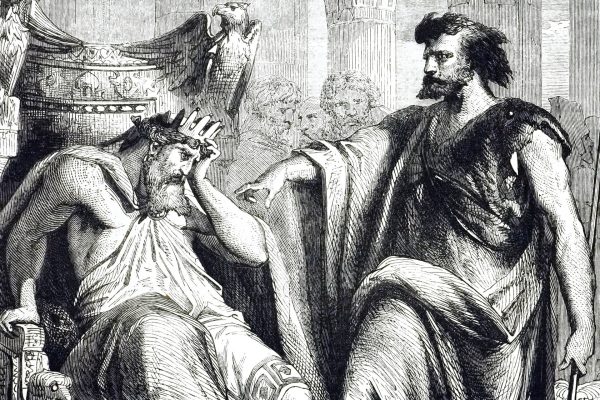In a few words, I want to reach back into the Old Testament to look at the forgotten face of a man who cared. His name was a prophet called Nathan. Nathan was a man of God who served in the times of King David. We know little about him personally, but it is obvious that Nathan was a man who cared, as we will see from these episodes in the life of Nathan.
In 1 Chronicles 17, David wanted to build the house of the Lord. It had been in a tent for hundreds of years and David thought it was time to build a temple to worship God. David’s intentions were good and Nathan approved his plan. He told David is v. 2, “Do all that is in thine heart; for God is with thee.” But sometimes we do not think like God. So that night, Nathan received a visit from the Lord. Nathan was told to go back to David and tell him not to build a house. Nathan had to correct himself. He then told David that his son Solomon would build the temple. Verse 15 adds, “According to all these words, and according to all this vision, so did Nathan speak unto David.” So sometimes we need to correct ourselves when we are wrong. That is repentance.
In 2 Samuel 11-12, in the most well-known event in his life, Nathan had to rebuke David for his sin. After setting up the parable of the poor man’s ewe lamb and David rendering the correct judgment by saying, “As the Lord liveth, the man that hath done this thing shall surely die: And he shall re- store the lamb fourfold, because he did this thing, and because he had no pity,” Nathan had to tell him “Thou art the man” (2 Samuel 12:5-7)! It sometimes escapes us that Nathan was risking his own life. In David’s state, he could have punished or killed Nathan. But because righteousness was important to God, it was important to Nathan. Nathan cared enough about God and about David to do the confronting. We should do the same. We need to realize that the best action we can take for a fellow Christian sometimes is to confront them when they are wrong (Matthew 18:15-17; 1 Corinthians 5:9-11; Galatians 6:1).
Following his dark episode with Uriah and Bathsheba, David’s repentance was complete. Psalm 51 is probably the best confession of sin ever written. The baby that was born did die as God, through Nathan, had promised. Second Samuel 12:18-25 shows us that God is righteous, but He also is merciful. Although David was disciplined for his sin, God did not withhold blessing and so, when Solomon was born, God loved him. Nathan was called to convey to David that the child was loved of God. Nathan even gave the boy a “nickname” — Jedidiah — which means, “Beloved of the Lord.” Nathan could have stayed angry at David, even after God forgave him. But Nathan realized that if God forgave, blessed, and comforted David, he should too (Romans 12:15; Ephesians 4:32; Hebrews 10:24-35).
Christians should be people who care (Philippians 2:4; 1 John 3:17). The apostle Peter exhorted, “Finally, be ye all of one mind, having compassion one of another, love as brethren, be pitiful, be courteous” (1 Peter 3:8). It is wonderful when Christians learn to mimic godly men and women of the past. Nathan cared about truth, about himself, and about others!
Kyle Campbell


